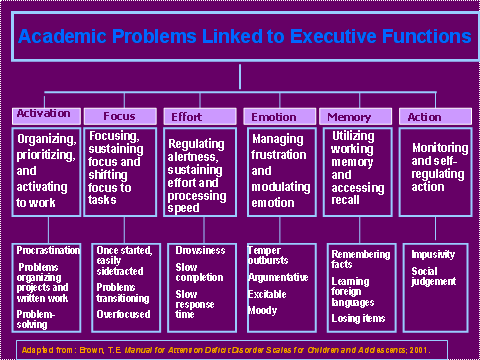
Source
Executive functions are typically developed before the age of 8, and are the foundation of mental and emotional development, and vitally important to life success.
Many observers of The Dangerous Child phenomenon focus on the lethal skills that Dangerous Children learn in the course of their training. But more important than the lethal (or even financial) skills are the character, emotional, and interactive skills. Here are a few:
- Persistence and grit
The pre-frontal executive functions are more important to life success than IQ. Persistence and grit are foundational traits within the executive functions.
- Conscientiousness
Another executive function, conscientiousness is a matter of honest character and integrity, of staying the course. An expansive and abundant human future can not be built on anything less.
- Mastering your thoughts
This involves self-discipline and impulse control, another executive function. It is a necessary skill for the mastery of self-teaching, something that every Dangerous Child must learn to do early.
- Finding answers on your own
This is a crucial aspect of self-teaching. Most questions are relatively trivial, with readily accessible answers to those who learn where to look.
- Asking for help
Everyone runs into a wall from time to time. Knowing when to swallow one’s pride and ask for assistance can make the difference between stalling out, and moving forward stronger than ever.
- Listening
A well-tuned and well-prepared mind knows how to watch and listen. This is where most ideas and opportunities are found
- Knowing when to shut up
Talking too much blocks important observations and repels thoughtful persons around you.
- Knowing when to speak up
Every Dangerous Child is a unique node of observation and thought. Potentially important ideas and observations need to be brought to the attention of others to whom they may be relevant.
- Being present in the now
There is a time for daydreaming and a time for paying close attention. Dangerous Children will often place themselves in hazardous situations, where extreme vigilance is crucial
- Minding your business
While being open to new ideas and observations, The Dangerous Child also knows how to ignore the extraneous
- Say what you mean and mean what you say
Honest and succinct communication is priceless, particularly in tight situations
- Positive self talk
The Dangerous Child must learn to understand and befriend himself, providing emotional support and recalibration on a regular basis
- Learn time budgeting
The limiting nature of time is a difficult concept for most children. But for Dangerous Children in particular, the mastery of time is crucial to the development of multiple skills, competencies, and talents
- Learn the value of sleep, exercise, a playful attitude, love of challenge, and good nutrition
Childhood learning is best done in an atmosphere of increasingly serious play. This involves an emotional balancing and mental focus that requires regular mental and physical re-charging and a healthful stressing.
These are just a taste of the important skills that pre-tween children must learn in order to prepare themselves for later skills learning. Demonstration of the pre-frontal executive functions are crucially important for later Dangerous Child training. If the child cannot be trusted with his hands, feet, or mouth, he cannot be trusted with a firearm or other lethal weapons or skills.
Source: http://www.impactlab.net/2016/08/12/13-skills-hard-to-learn-skills-that-will-pay-off-forever/
Note that the source article linked above is referring to skills that should be mastered by adults of all ages. While such skills may be helpful to learn in adulthood, if one waits that long to learn them he will have missed many priceless opportunities to learn, grow, and build. Dangerous Children have no need to suffer through a modern dysfunctional schooling and upbringing, only to be forced to unlearn all the indoctrination in adulthood.